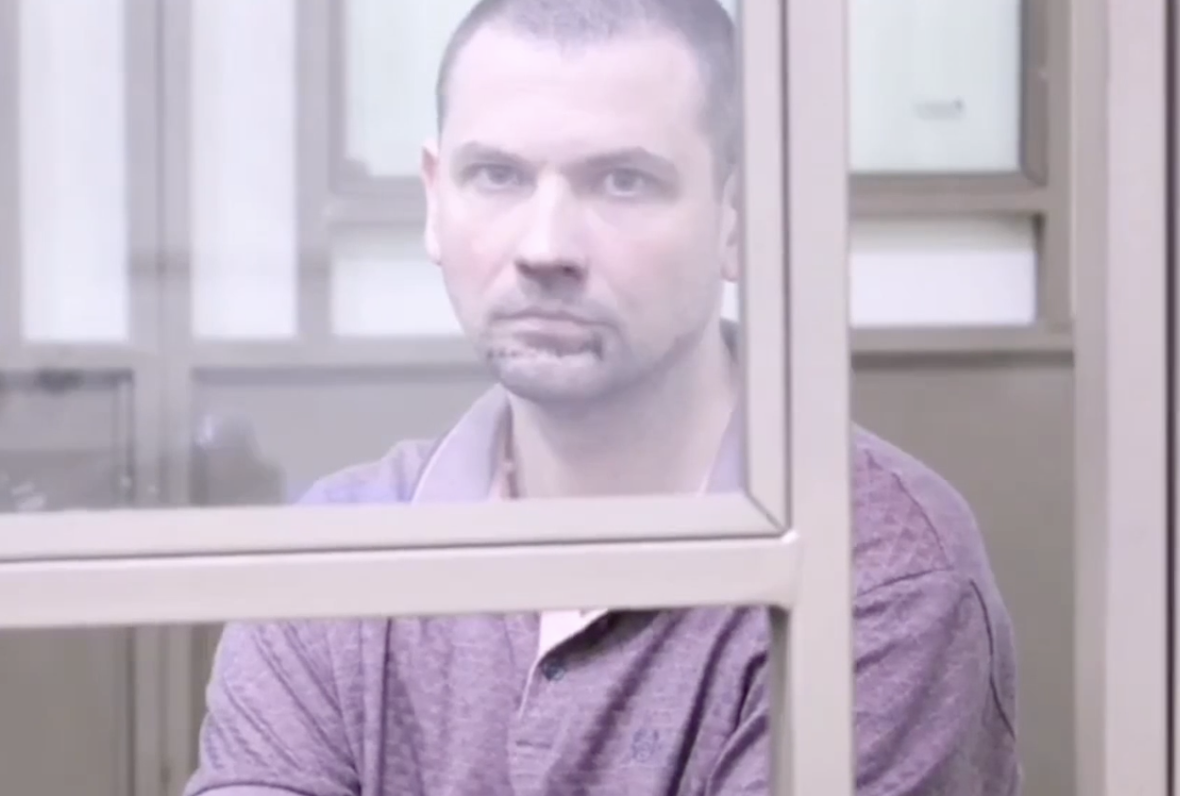Russia sentences Sevastopol man to 17 years amid massive increase in surreal ‘treason trials'

The occupation Sevastopol city court has sentenced 37-year-old Vadym Sorokoletov to 17 years’ imprisonment for allegedly posting photos and information about Russian military sites on an Internet chat. Skorokoletov, who almost certainly only had Russian citizenship because Russia has made it impossible to live in occupied Crimea without accepting its passport, was found guilty of ‘state treason’ against the Russian occupying state. Russia’s use of ‘treason’ charges has risen exponentially since its full-scale invasion of Ukraine, with all such ‘trials’ taking place behind closed doors, with the only certainty lying in the victim’s conviction and long sentence.
The sentence was reported by Russian-controlled media on 8 July 2025, together with an FSB video claiming to show Sorokoletov’s ‘arrest’. These videos are very often staged, with the audience presumably supposed to believe that the substantial number of armed FSB men in full combat gear deployed was because they were seizing some kind of dangerous criminal. Having ‘seized’ an unarmed man who was showing no resistance, the FSB then pulled out their hat trick - a Ukrainian flag which Sorokoletov had in his car.
The charges cited in virtually all such cases are the same, with Sorokoletov alleged to have, in September 2023, joined a chat on an Internet messenger, which had supposedly been coordinated by Ukraine’s Military Intelligence [HUR]. This was, purportedly, “in order to carry out intelligence and sabotage terrorist activities” in what the aggressor state claims to be ‘Russia’, although Sorokoletov is from occupied Crimea. He is claimed to have, “that same day”, photographed and gathered information about the location of Russian defence ministry sites, seemingly of a Russian air-defence system and units of the Russian Black Sea fleet in Sevastopol, and then posted this information on the chat “in order to help a foreign security service with activities aimed against the security of the Russian Federation.”
The occupation ‘court’ sentenced Sorokoletov to 17 years in a maximum-security prison colony, with a further one year’s restricted liberty. He was also ordered to pay a fine of 200 thousand roubles.
Crimean Process recently reported a massive increase in Russian sentences on ‘treason’ charges over recent years. Of the 49 sentences it has analysed, 30 of these were passed in 2024, with the number set to rise significantly by the end of 2025.
Prior to Russia’s full-scale invasion of Ukraine there were very few such cases, despite the possibility for secrecy that charges of treason under Article 275 of Russia’s criminal code provides the FSB. To this day, scarcely anything is known about the charges and the ‘trials’ of Halyna Dovhopola and Ivan Yatskin, although both have been imprisoned since 2019 and are recognized political prisoners.
Russia’s abuse of its ‘treason’ legislation has increased enormously since the full-scale invasion, both in the Russian Federation and on occupied Ukrainian territory. The charges often appear to be identical or very similar to those used in ‘treason’ charges, with Ukrainians forced to take Russian citizenship accused of ‘treason’ and those without, including a substantial number abducted from occupied territory in early 2022, charged with ‘spying’ (Article 276).
Another extremely cynical trend over the last year has been Russia’s use of ‘treason’ charges against Ukrainians living on Ukrainian territory and accused of making donations to Ukraine’s defenders. Liudmyla Kolesnikova was, for example, recently sentenced to 17 years’ imprisonment over a donation made in early 2022. Kolesnikova was seized by the FSB after she returned to Crimea from Ireland, where she was living, because her mother was dying of cancer. She was taken prisoner immediately after her mother’s funeral.
Oksana Senedzhuk
Russia rubberstamps 15-year ‘treason’ sentence against 58-year-old Crimean activist Oksana Senedzhuk
Nina Tymoshenko
Russia’s most savage sentence yet against 66-year-old Ukrainian woman from occupied Crimea
Liudmyla Kolesnikova
Roman Hryhorian
Ukrainian seized in Crimea and sentenced to 12 years for donations to Ukraine's defenders
Serhiy Shtyrov
60-year-old from Russian-occupied Donbas sentenced to 13 years for donations to Ukraine’s defenders
Two women from Enerhodar sentenced to 14 years: Lilia Kazhkariova, S.N. Dovhopola
Kateryna Korovina Forced 'to wake up a foreign citizen in her own country’. Kateryna Korovina sentenced to 10 years for opposing Russia’s occupation
Ivan Semykoz Russia sentences Ukrainian to 8.5 years for donation as a teenager to Ukraine’s Azov Regiment
Stanislav Rudenko Chilling surveillance methods as Russia sentences Ukrainian to 10 years for donation to defend Ukraine





